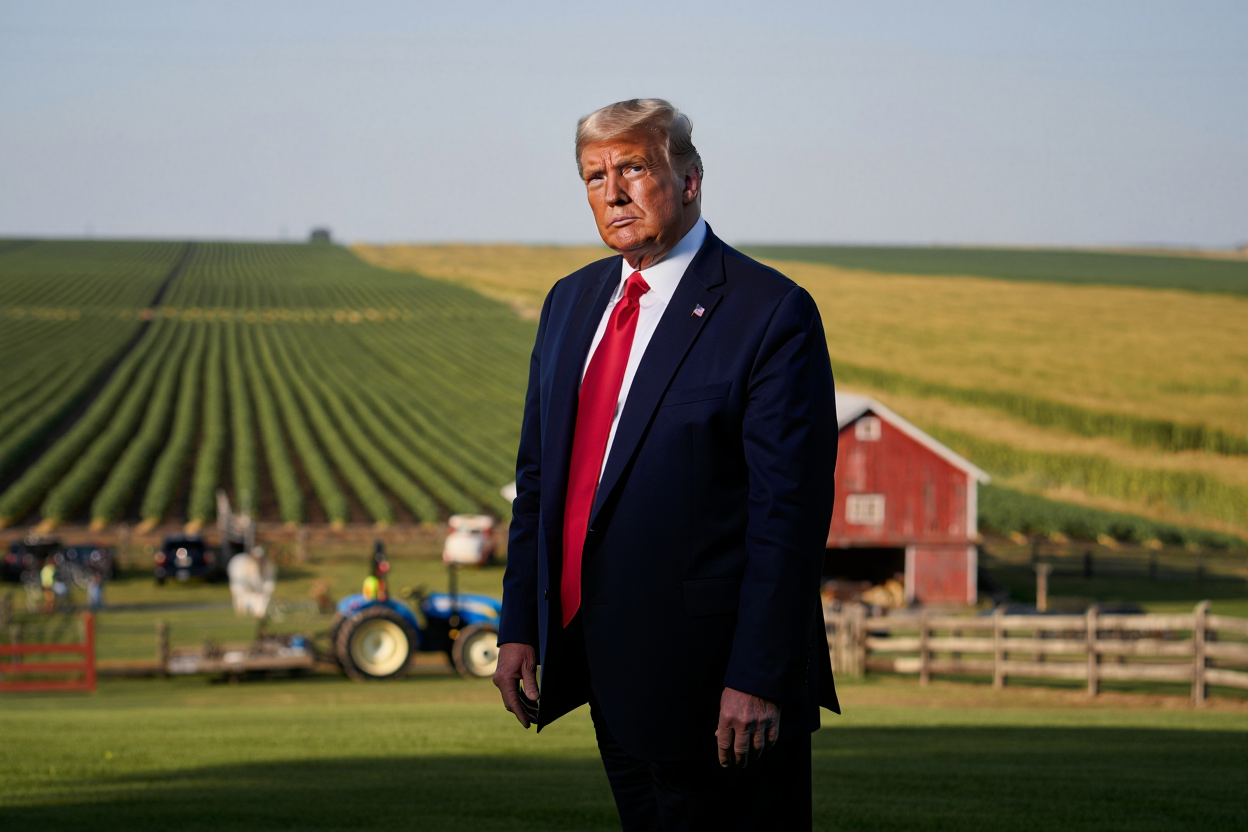OPINION
Trump Slows Solar Spending, As Some Delaware Farmers See a Victory for Farms in America’s First State
Dear Friends,
Some Delaware farmers are happy to see that solar spending has been cut in Delaware. It’s a “win for farmland preservation” as you’ll see in the Spotlight Delaware story below. Solar funding by the Trump administration will slow down solar funding, which I agree with folks. How do you see it? Please share your feedback. It’s always appreciated.
Respectfully Yours,
JUDSON Bennett–Coastal Network
Trump admin to cut solar spending. Some Delaware farmers rejoice
by Olivia Marble
September 4, 2025
Large-scale solar projects on farmland have been controversial in Delaware for years, and now, funding changes at the federal level may slow the growing industry.
U.S. Secretary of Agriculture Brooke Rollins announced last month that her agency will no longer provide guaranteed loans to large-scale solar projects on farmland.
“Subsidized solar farms have made it more difficult for farmers to access farmland by making it more expensive and less available,” Rollins wrote in a press release.
Some Delaware farmers see this change as a win for farmland preservation.
“I am absolutely tickled to death,” said Jim Minner, Kent County Farm Bureau president. “We’re losing too much really good viable farmland to solar.”
The change follows a period of rising wholesale electricity costs across the mid-Atlantic – one that last year sparked a backlash from state governors who called for sweeping reforms, including faster approvals of proposed wind and solar projects.
It also comes as Delaware lawmakers try to push for increases in the amount of renewable power produced in the state. In 2024, about 9% of Delaware’s total in-state net generation came from renewable resources, with most of it produced by solar energy, according to the U.S. Energy Information Administration.
State officials want that figure to reach 40% by 2035.
This is not the first time the Trump administration has ended funding for solar projects.
President Trump’s Reconciliation Budget Bill, also known as the “One Big Beautiful Bill Act,” signed into law this past July, made significant cuts to clean energy incentives.
The law eliminated residential clean energy tax credits, which allowed homeowners to deduct 30% of the systems’ costs from their taxes. The incentive will expire on Dec. 31.
In addition, companies and developers seeking to qualify for commercial clean energy tax credits must either start their projects before July 6, 2026 or have their projects in service by the end of 2027.
Dale Davis, president of CMI Solar and member of the Delaware Solar Energy Coalition, said the cuts to federal funding, the tax credits and high tariffs on importing solar panels will “definitely create a downward trend” in new solar projects across the country.
Farmers react
Minner said that local farmers are glad to see the USDA end the guaranteed loans to solar because of the rapid development of farmland in the southern part of the state.
“What we don’t lose to houses, we lose to solar panels,” he said.
Minner, who has been a crop farmer in Kent County for 35 years, recently lost a piece of farmland in the town of Viola that he had rented after the owners chose to lease it for community solar panels instead.
“That was the best piece of ground I had,” Minner said. “It’s in solar panels now, okay, I didn’t own that. So, I had to take whatever was given.”
Minner argues the spread of solar panel projects onto productive farmland means less land available for agriculture, forcing small farmers like him to compete for what’s left while also facing higher costs, as the financial incentives for leasing land to solar companies are often far better than farming income.
“As more farmland goes into solar, all of us farmers are going to be fighting, competing for the same land, just – it’s not good,” he said.
This opposition to solar projects on farmland isn’t new.

